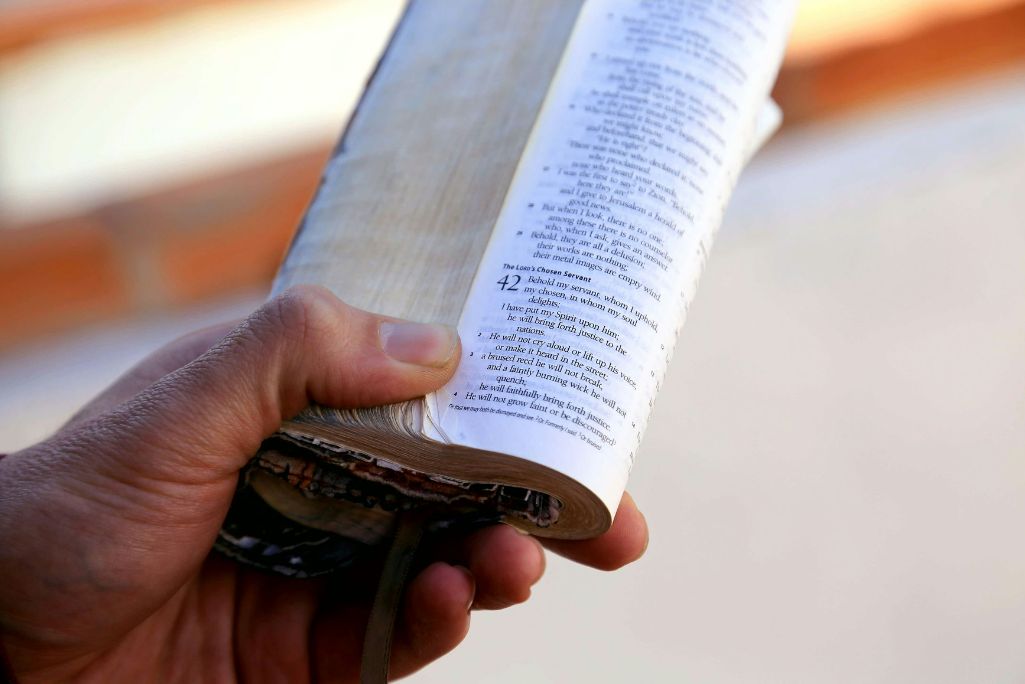Years back, the church often sang the hymn “Trust and Obey.” It offered a great truth: To be happy in Jesus, we need to trust the Lord implicitly and obey Him completely.
Looking at the church today, do you ever wonder whatever happened to obedience? We find so many struggling to find happiness in the Christian life. What many fail to realize is that God’s first priority for us is our practical holiness not happiness.
|
Doug Metzger |
And yet, once we start seeking holiness, the matter of spiritual happiness falls in place.
When wondering whatever happened to obedience, we can also ask whatever happened to holiness. How desperately the church needs what Charles Finney said many years ago concerning revival – “a revival is nothing else than a new beginning of obedience to God.”
A new beginning of obedience could well lead to a personal revival that brings holiness and happiness to the believer who takes obedience seriously.
I learned real obedience the hard way. It was my privilege to attend and graduate from the United States Naval Academy in Annapolis. When I arrived to begin my first year, I had no idea what was in store during what is called plebe year.
Plebe was the title we wore and whenever you heard the word “Plebe” you knew that very likely it was not going to be good. Plebes back in my day went through a boot camp-type experience marked by enormous physical challenges involving some pretty tough hazing from the upperclassman.
Additionally, there was very demanding regimentation in the form of restrictions that placed plebes on the academy grounds seven days a week except for five hours on Saturdays if one was not working off demerits. Not only was there no dating, but a plebe was not to be caught speaking to a girl. Riding in a car was not allowed either.
Mealtimes were filled with passing the chow and answering professional military questions all while bracing up, which required a plebe to get into a rigid attention-like posture while tucking one’s chin as far into one’s neck as possible. If one did not know the answer to a question, the only acceptable response was “I’ll find out, sir.”
If a plebe returned to the next meal without the answer, he might hear the words “shove out” – assuming a sitting position without the benefit of a chair – or “come around.” That meant showing up at the upperclassman’s room at 6:15 in the morning or at 6 p.m. prior to evening meal formation. What followed in both cases was 30 minutes of pushups or perhaps uniform races requiring a plebe to race back to his room and change from one uniform into another or sometimes into multiple layers of sweat gear or facing a multitude of other commands devised by the upperclassman. It was generally misery for the plebe; it all demanded absolute obedience.
The taxpayer might wonder if the expense of such ridiculous training is worth the investment. My answer lies in painting the following scenario:
A young Naval Academy graduate is on the bridge of a multimillion dollar vessel serving as the officer of the deck (OOD). He’s in charge. Everything seems to be going well until the commanding officer (CO) enters and, with his vast experience, sees a dangerous situation requiring an immediate course change.
The CO says to his OOD, “Mr. M., right full rudder.” Let me tell you what the CO doesn’t want: excuses or the offer of a better idea or delay. He demands and expects instantaneous obedience. So the young officer’s immediate response is “Aye, aye, sir.” He has learned through his training that obedience is the only way to make the CO happy. It is also the only way to stay out of a world of trouble.
Does this have anything to do with my life as a believer? Sure enough. My life is to be one of seeking to follow my Lord wherever He leads and to do whatever He says to do. Excuses are not acceptable.
As to having a better idea, there is no better way than God’s way. And delayed obedience is nothing more than disobedience. My response to my Father in heaven is to be “Aye, aye, Lord, to Your will and to Your way.”
It took a yearlong boot camp for me to learn well what it meant to give total, instantaneous obedience to those in charge over me in the Navy. Most believers have never had such training and unfortunately appear to be slow learners in the school of hard knocks as to what obedience to God would mean for their lives. There is a great truth found in the hymn Trust and Obey. Oh, that those in the body of Christ would learn and practice such obedience. It could indeed be a great step forward toward needed revival!
(EDITOR’S NOTE – Doug Metzger is a retired pastor in Canton, Ga., who served churches 20-plus years in Pennsylvania, New Jersey, Georgia and California in addition to eight years with the North American Mission Board as director of prayer evangelism and, earlier, director of its Strategic Focus Cities emphasis and three years with its predecessor, the Home Mission Board, as associate director of personal evangelism.)



